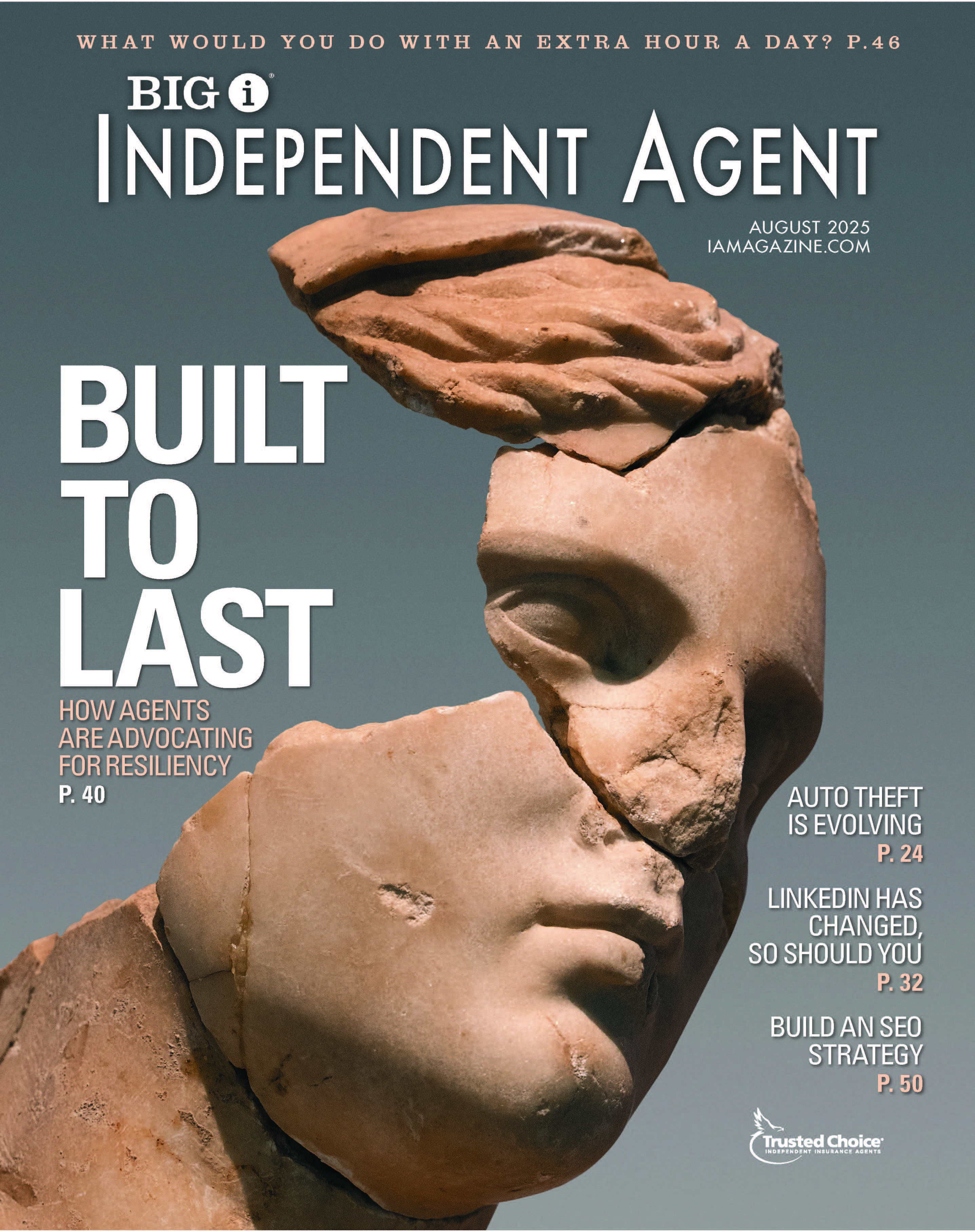Insurance Companies Should Earn Agents’ Business
By: Tom Helbach
October Insurance Views
Insurance Companies Should Earn Agents’ Business
As independent insurance agents, our value to our customers and our companies rests in our independence. We are beholden to no one. We can honestly say to clients, “We work for you.” Every insurance agent has heard this message a thousand times. But it’s more than a mantra; it’s our reason for being. If we want our customers to trust us, they must have confidence in our commitment to deliver products and services that are truly in their best interest. Without that, “independent” has no meaning.
At the same time, we are asked to ignore our independence and to become beholden to insurance carriers. All this came to mind when the representatives of an insurance company visited us. It was the annual “end of the year” visit in which we are given our goals for the coming year. During the meeting, it was suggested that we could demonstrate our loyalty to the company by not shopping our accounts.
In other words, “shopping” is in conflict with “loyalty.”
This all occurred just after we sent this particular carrier a renewal that came back with a $40,000 quote. Experience indicated that this seemed quite high for this account, so we “shopped” it. From an equally respected carrier, the price was $10,000. Does loyalty mean we are to pass up a comparable quote that is 75% less? Who are we working for?
How can we take goals seriously when we are unable to control the pricing? Just as we must earn our customers’ business, should it not be the same for our carriers? Is it too much to expect that they demonstrate to their agents that they want our business?
When it comes to the nitty-gritty, independent agents pay carriers to transfer risk. That’s the deal. But when placing business, it seems as if the process all too frequently becomes confrontational—us against the underwriters.
As agents, we have value to both our clients and our carriers because we know a client’s business. If it’s a new customer, we can perform our due diligence so that we understand the exposures and are prepared to present an accurate picture to the underwriter. If we don’t live up to this expectation, we deserve to be challenged.
The better we understand and the more we know about a client’s business, the more value we can bring to presenting the account properly. At the same time, we often find ourselves faced with having to deal with underwriters who change frequently. They don’t know us and we don’t know them—and yet our business depends on having a trusting relationship with our carriers. This is a very important and sensitive issue with agents since we all know how vulnerable we feel when there’s a change of insurance buyers.
Next, the marketplace has changed, dramatically. Insurance buyers are far more sophisticated and knowledgeable than they were even a few years ago thanks to Google. Arguably, some are not nearly as well informed as they think they are. Nevertheless, they feel empowered and willing to obtain other proposals, even when they’ve been with us for years and years. We serve our clients; we do not control them. What we need are insurance carrier partners who understand what’s happening on the street and who want to work with us to attract business.
Finally, insurance companies need to think about what they call the “franchise value” of their brand. There was a time when business owners, for example, took pride in “being with” certain insurance companies. While that may still be true in a minority of cases, our customers look to us for the right recommendation. They expect us to place their business with the carrier that can best serve their needs. Franchise value is more myth than reality today.
Sometimes I think insurance companies don’t get it. On a recent renewal for a hotel company, we talked with the underwriter, indicating that this was a competitive situation and we needed his best price at the get-go. It came back at $130,000. We called and discussed it with the underwriter and he dropped it to $98,000. When we presented it to the client (a 10-year relationship, by the way), he said, “You’re high.” We went back to the underwriter. Once again, he dropped the price, this time to $69,000.
When we presented him with the new premium, he exploded. “I wouldn’t give any more business to that insurance company. It’s clear they’ve been taking advantage of us for years.” We lost the account even though our $69,000 price was lower than our competitor’s quote.
When we told the underwriter what happened, he commented, “I didn’t think they would leave.”
The bottom line is that most independent agents want to be loyal to their carriers. We want to be comfortable and enjoy a mutually satisfactory relationship with them, just as we do with our clients. By embarrassing us, harming our customer relationships and not dealing with us honestly, some insurance companies are doing severe damage to the people they call their partners, the independent agent.
What’s the point of all this? Simple. We need to feel that the symbol of our commitment to our customers—our independence—is valued and respected by those who supply the products we sell.
Tom Helbach (tomh@mosinee.ins.com) is president Mosinee Insurance Agency, Inc., in Mosinee, Wis., and president of the Independent Insurance Agents of Wisconsin.









